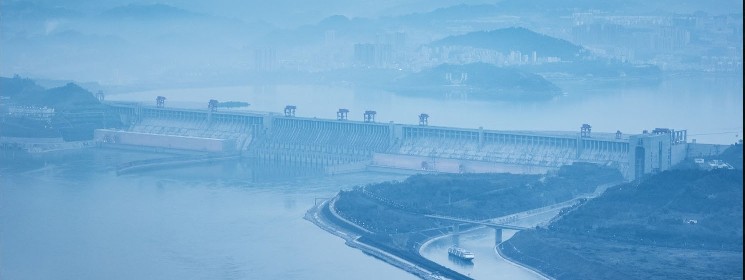China is making significant strides in its digital transformation journey, with a recent focus on incorporating cutting-edge technologies into public utilities. One area where this shift is evident is in the realm of water management systems.
Rapid urbanization and aging infrastructure have presented unique challenges for China’s water management sector. To address these issues, authorities are turning to innovative solutions such as blockchain and artificial intelligence (AI). The Harbin Institute of Technology is at the forefront of this movement, leveraging AI-powered systems to enhance water management in major cities like Beijing and Shanghai. These systems enable real-time automation and seamless monitoring, allowing for predictive analysis and early detection of contaminants in the water supply.
By combining blockchain technology with AI, China is aiming to increase transparency in its water management processes. Some regions are even exploring the use of blockchain for water rights trading, citing the technology’s immutability and transparency benefits. The decentralization of blockchain is seen as a catalyst for promoting sustainable resource distribution and ethical standards in water management.
Watertech China, the world’s largest water exhibition, will showcase various AI and blockchain-powered products for both consumers and enterprises. Despite China’s ban on digital assets, the country continues to embrace blockchain technology in various sectors to enhance public utilities and services.
In addition to water management, AI is playing a crucial role in China’s broader digital transformation efforts. Industries such as agriculture, health, robotics, and education are incorporating AI to drive efficiency and productivity at scale. Major cities are investing heavily in research and development to further innovate and capitalize on the benefits of AI technology.
In a similar vein, Vietnam and Belgium have recently forged a partnership to leverage emerging technologies in combating climate change. The Vietnam Institute of Meteorology, Hydrology, and Climate Change (IMH) and Belgium’s Flemish Institute for Technological Research (VITO) have signed a memorandum of understanding to collaborate on technology initiatives aimed at addressing global climate challenges.
The collaboration will focus on utilizing advanced solutions in urban climate research, circular economy development, water resource management, and greenhouse gas emissions regulation. AI, Big Data, and the Internet of Things (IoT) will play a key role in driving innovation and creating smart solutions for various sectors including smart cities, disaster warnings, agriculture, fisheries, and energy.
Both countries are committed to upskilling their workforce in emerging technologies and fostering technology transfer through research projects and exchange programs. Vietnam, in particular, is emerging as a regional leader in AI and blockchain, with initiatives to become a key player in these industries by 2030.
With a renewed focus on blockchain and AI technologies, Vietnam is positioning itself as a hub for innovation and technological advancement. As countries around the world embrace digital transformation, the integration of AI and blockchain systems will be crucial in driving progress and creating sustainable solutions for the future.

